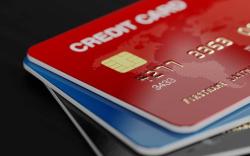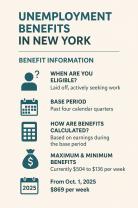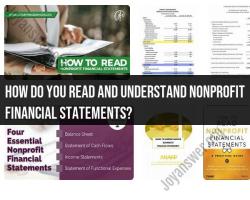How to get the best currency exchange rates?
Getting the best currency exchange rates involves a combination of strategies and considerations, whether you're exchanging currency at a bank, an exchange bureau, or using an online service. Here are some tips to help you secure the best exchange rates:
Compare Exchange Rates: Shop around and compare rates from different sources, such as banks, currency exchange bureaus, and online exchange platforms. Websites and apps often provide rate comparisons to help you find the best deals.
Use Online Currency Converters: Online tools and currency converter websites can help you quickly check the current exchange rates and compare them across various providers. This can be especially helpful for planning your currency exchange.
Avoid Airport Kiosks: Airport currency exchange kiosks typically offer less favorable rates due to higher overhead costs. Whenever possible, avoid exchanging currency at the airport. Instead, get some local currency before your trip or use an ATM at your destination.
Understand the Mid-Market Rate: The mid-market rate is the real exchange rate between two currencies, and it's often the most competitive rate you can get. Banks and exchange services may add a margin or fee on top of this rate. Try to find rates as close to the mid-market rate as possible.
Plan Ahead: Currency exchange rates can fluctuate. If you have the flexibility to choose when to exchange currency, monitor the rates over time and aim to exchange when the rate is favorable.
Avoid Dynamic Currency Conversion (DCC): When using your credit card abroad, you may be given the option to pay in your home currency rather than the local currency. This is called Dynamic Currency Conversion and often involves unfavorable exchange rates. Choose to be charged in the local currency to get a better rate.
Use Fee-Free ATMs: If you need cash abroad, use ATMs that don't charge foreign transaction fees. Some banks offer international ATM fee rebates as part of their services. Check with your bank to see if they offer this.
Consider Online Transfer Services: For larger currency exchange transactions or international money transfers, consider using online transfer services like TransferWise (now Wise), OFX, or Revolut. These services often offer competitive rates with lower fees than traditional banks.
Watch Out for Hidden Fees: Be aware of additional fees, such as service charges or commissions, which may not be immediately apparent when you're quoted an exchange rate. Always ask about additional fees before proceeding with the transaction.
Ask for Bulk Rates: If you're exchanging a large amount of currency, inquire if the provider can offer you a more favorable rate due to the larger sum. Negotiating a bulk rate can sometimes be successful.
Use Currency Alerts: Some exchange rate websites and apps allow you to set up currency rate alerts. You can specify a target rate, and you'll be notified when the rate reaches that level.
Consider Forward Contracts: If you know you'll need to exchange a significant amount of currency in the future, some providers offer forward contracts, allowing you to lock in a current exchange rate for a future transaction.
Stay Informed: Keep up to date with financial news and events that may impact currency exchange rates. Global economic and political developments can lead to significant rate fluctuations.
Remember that getting the best currency exchange rates can vary depending on the currencies involved, the amount you're exchanging, and the current economic climate. It's essential to be well-informed and consider the options available to you before making any currency exchange transactions.
Getting the Best Currency Exchange Rates: Strategies
Here are some strategies for getting the best currency exchange rates:
- Compare exchange rates from different providers. There are a number of different places where you can exchange currency, such as banks, currency exchange bureaus, and online currency exchange services. It is important to compare exchange rates from different providers to get the best rate.
- Look for hidden fees. Some currency exchange providers charge hidden fees, such as commission fees and service fees. Be sure to ask about any hidden fees before you exchange currency.
- Exchange currency in large quantities. Currency exchange providers often offer better exchange rates for larger transactions. If you are traveling, consider exchanging currency before you leave or exchanging currency at the airport when you arrive.
- Use a credit or debit card that offers no foreign transaction fees. Many credit and debit cards charge foreign transaction fees when you use them overseas. Look for a credit or debit card that offers no foreign transaction fees to save money on currency exchange.
- Consider using a peer-to-peer currency exchange service. Peer-to-peer currency exchange services, such as Wise and Revolut, offer competitive exchange rates and low fees.
Factors Impacting Currency Exchange Rates
Currency exchange rates are influenced by a variety of factors, including:
- Interest rates: Higher interest rates make a currency more attractive to investors, which can lead to an appreciation of the currency.
- Inflation: Inflation is the rate at which prices for goods and services are rising. A higher inflation rate can lead to a depreciation of the currency.
- Economic growth: A strong economy is typically associated with a strong currency. A country with a growing economy is more likely to attract foreign investment, which can lead to an appreciation of the currency.
- Political stability: Political instability can lead to a depreciation of the currency, as foreign investors are less likely to invest in a country with an unstable political environment.
- Trade balance: A trade balance is the difference between a country's exports and imports. A trade deficit (more imports than exports) can lead to a depreciation of the currency, as the country will need to sell its currency to buy foreign goods and services.
Finding Reliable Sources for Exchange Rate Information
There are a number of different sources for exchange rate information, including:
- Banks and currency exchange bureaus: Banks and currency exchange bureaus typically post their exchange rates on their websites or in their branches.
- Online currency exchange services: Online currency exchange services, such as XE and Oanda, provide up-to-date exchange rates for a variety of currencies.
- Financial news websites: Financial news websites, such as The Wall Street Journal and Bloomberg, provide up-to-date exchange rates and news about currency markets.
Timing and Planning for Favorable Exchange Rates
Currency exchange rates can fluctuate throughout the day and from day to day. It is important to time and plan your currency exchange transactions to get the best exchange rates.
One way to get the best exchange rates is to exchange currency when the market is open. Currency markets are typically open from 5:00 PM EST to 5:00 PM EST on weekdays.
Another way to get the best exchange rates is to use a currency exchange service that offers price alerts. Price alerts will notify you when the exchange rate for a particular currency reaches a certain level.
Tips for Saving Money on Currency Exchange
Here are a few tips for saving money on currency exchange:
- Exchange currency in large quantities. Currency exchange providers often offer better exchange rates for larger transactions.
- Use a credit or debit card that offers no foreign transaction fees. Many credit and debit cards charge foreign transaction fees when you use them overseas. Look for a credit or debit card that offers no foreign transaction fees to save money on currency exchange.
- Consider using a peer-to-peer currency exchange service. Peer-to-peer currency exchange services, such as Wise and Revolut, offer competitive exchange rates and low fees.
By following these tips, you can save money on currency exchange and get the best possible exchange rates for your needs.













